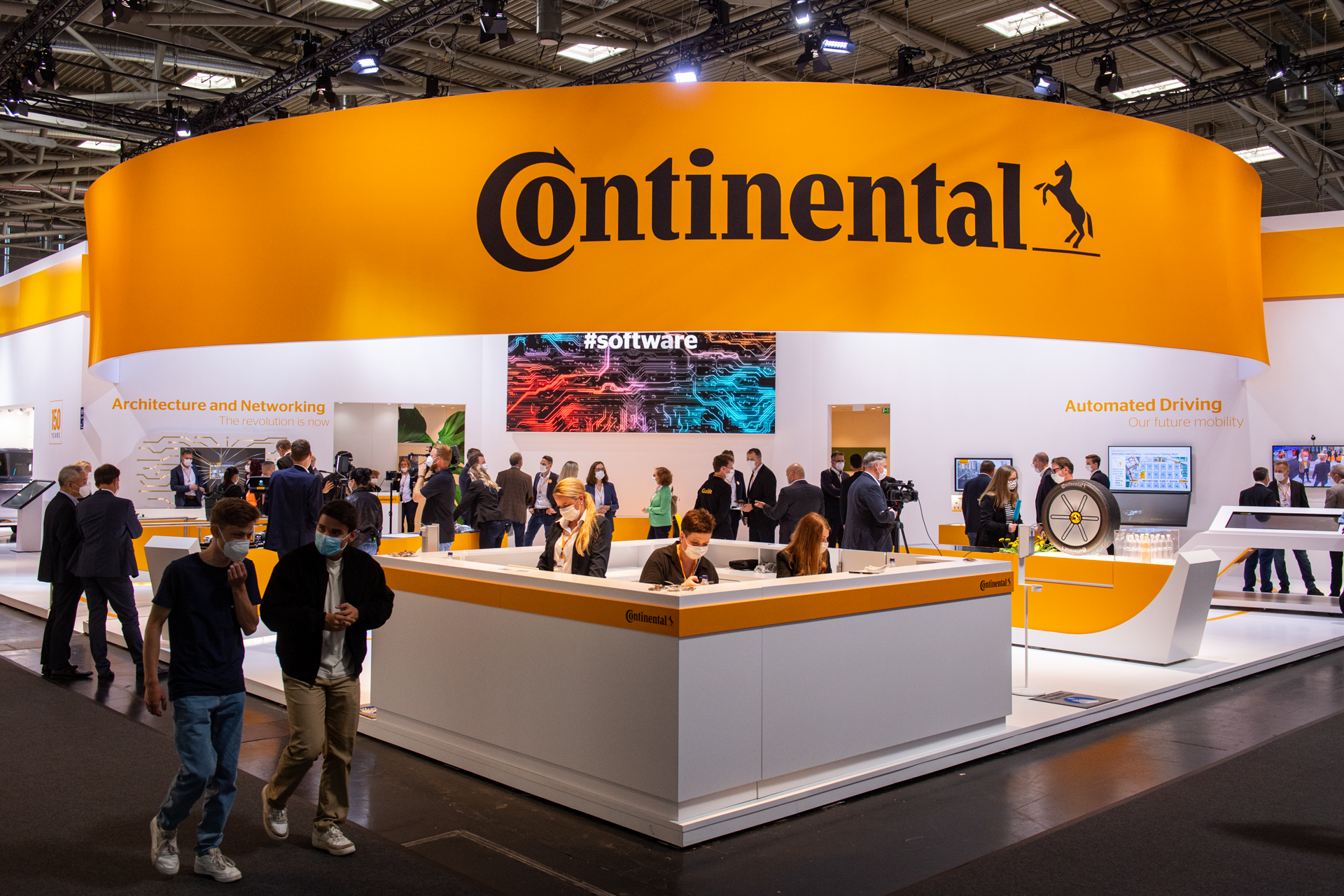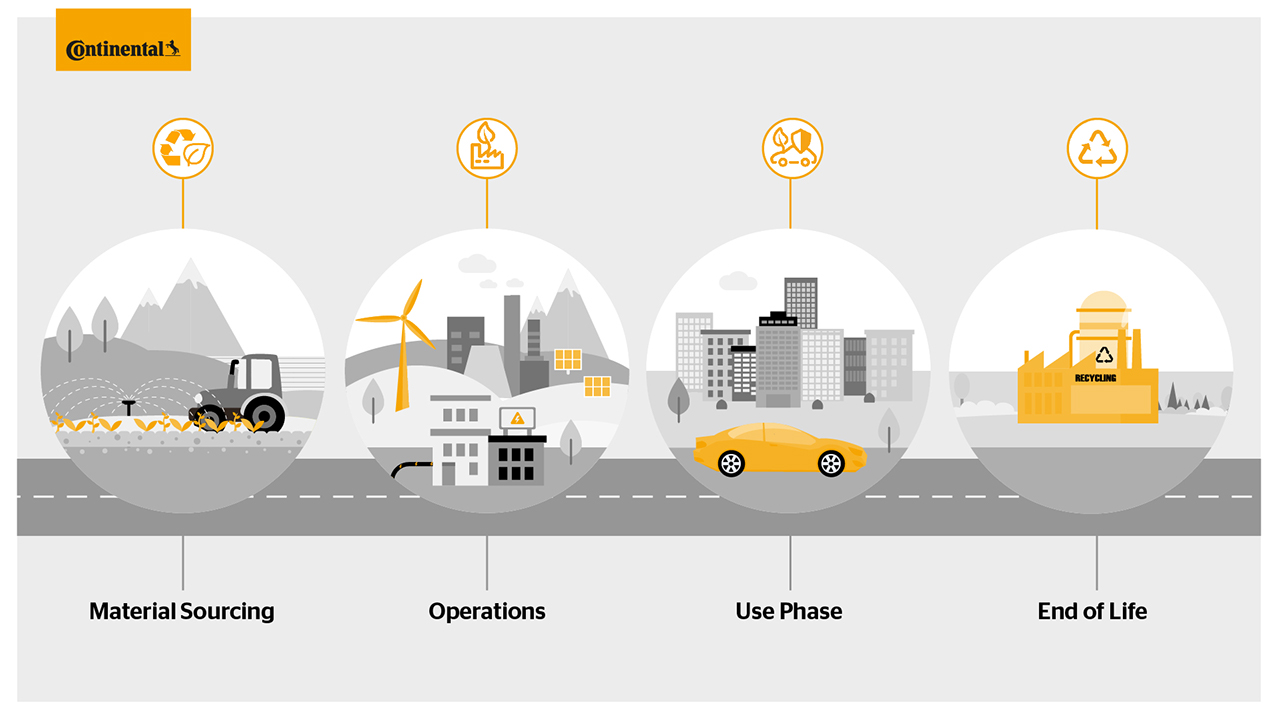
# Technology & Innovation
Continental responsibly sourced natural rubber
Subline
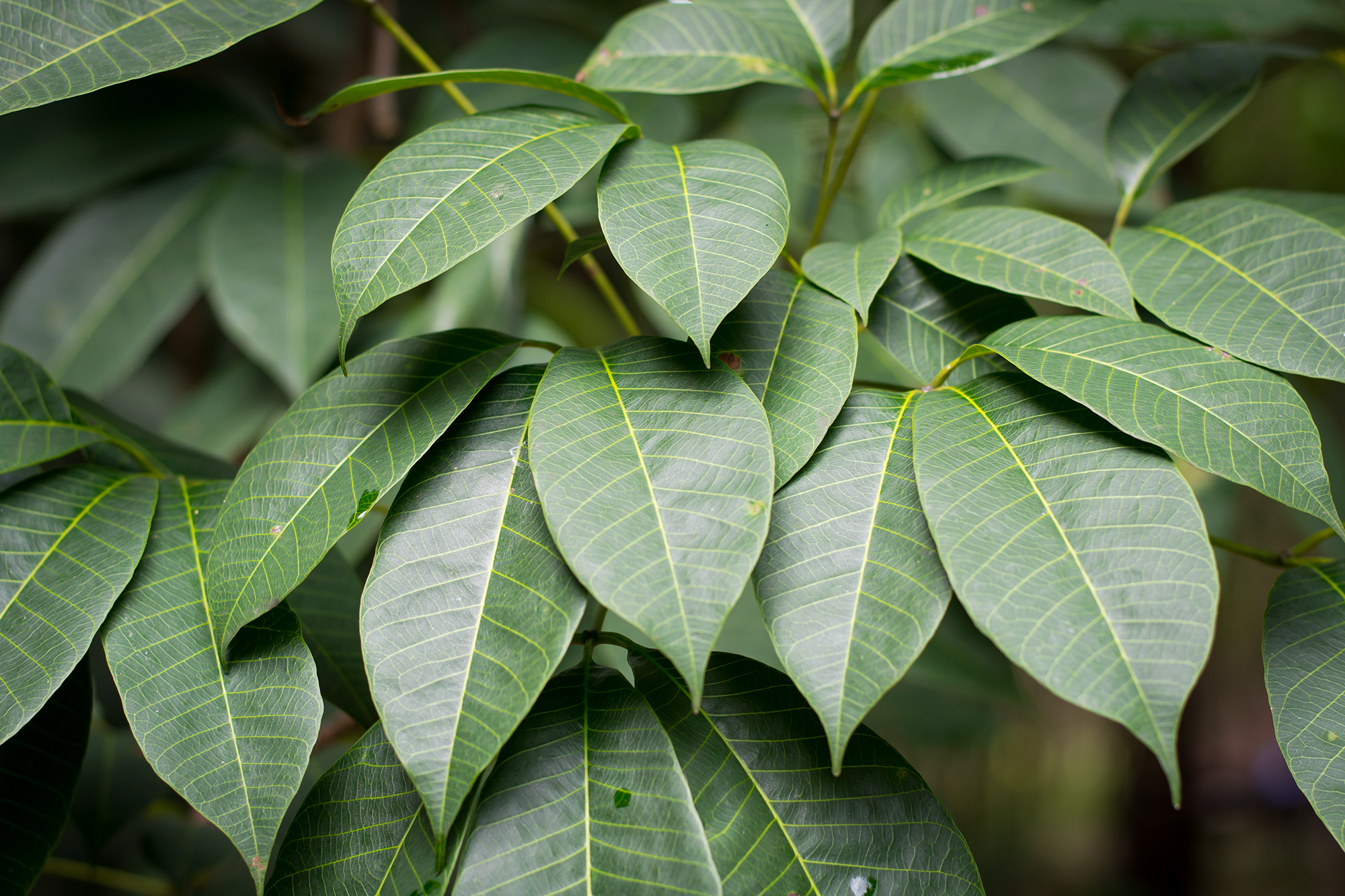
Continental has long been actively committed to greater transparency and sustainability along its global supply chains. We strive for concrete improvements through a holistic approach. That is why we are pursuing a wide range of activities to source all raw materials responsibly by 2050 at the latest. By 2030 we want to source all natural rubber we use from sustainable origins.
Continental considers natural rubber to be sustainably sourced if, based on the due diligence system we have defined, environmental, social and human rights-related risks have been assessed, monitored and minimized within the natural rubber supply chain, from direct and indirect suppliers (upstream supply chain) to smallholders.
We are convinced that only in a joint effort with all our stakeholders we can mitigate risks and negative impacts on workers, communities, forests, biodiversity, and agricultural land. Hence, we are engaging in different projects both within and outside the tires industry, such as our project to source natural rubber sustainably.
We have set ourselves ambitious goals when it comes to sustainability:
- Continental cares and is committed to source 100 percent natural rubber from sustainable origins by 2030.
- Until 2050 at the latest our tires are made of 100 percent sustainable materials.
- By 2050 at the latest, our supply chain at Tires will be 100 percent carbon neutral.
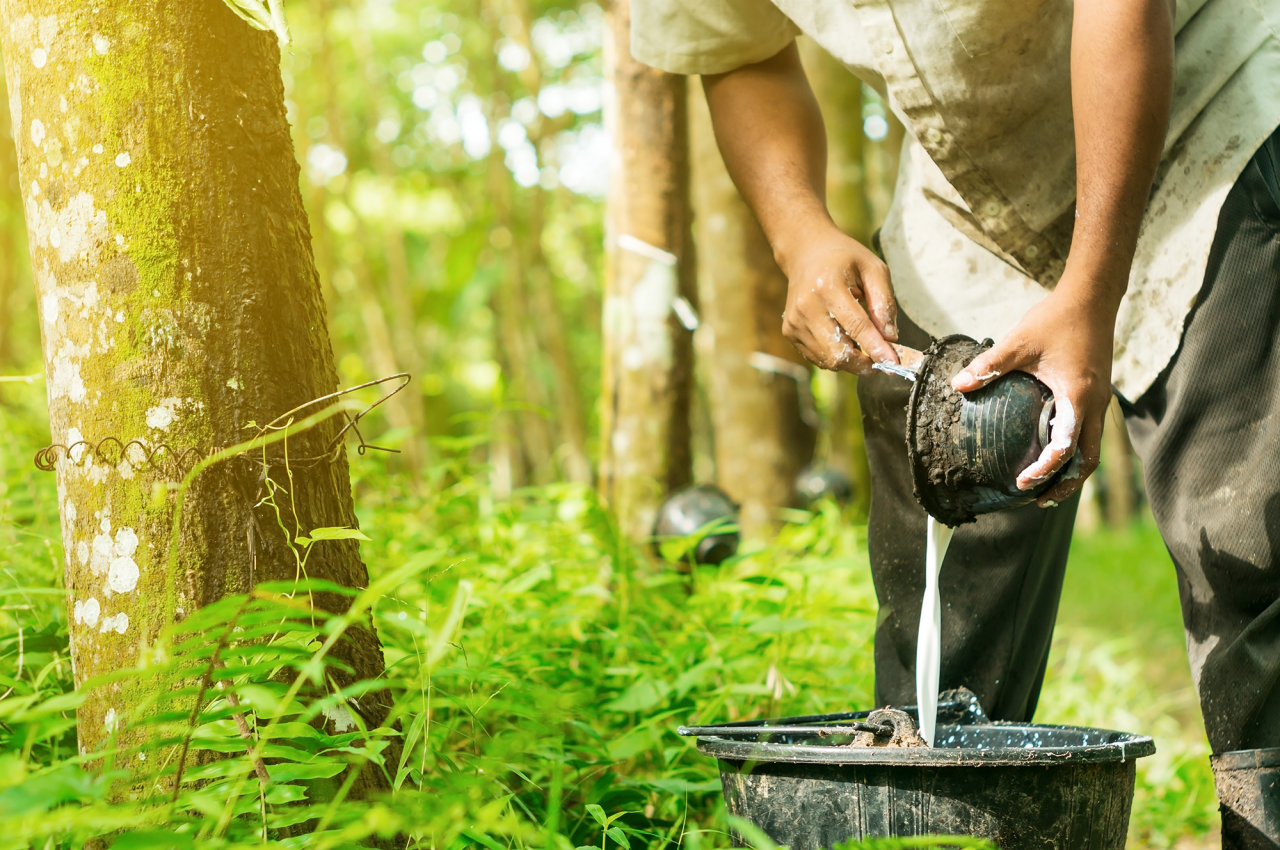
Definition of Responsibly Natural Sourced Rubber
For Continental, responsibly sourced natural rubber is a renewable resource with a transparent supply chain which is responsibly sourced through a due diligence mechanism to uphold human rights, minimize environmental impacts, improve communities’ livelihood and productivity, while having a fair and equitable value chain.
- Respect for people
- Minimizing environmental impacts
- Fair & equitable value chain
- Responsible sourcing
- Uphold labor rights
- Diversity and inclusion
- Adequate and safe consumption of food and water
- Respect land use rights
- No corruption
- No Deforestation
- Protection of High Conservation Value and High Carbon Stock
- Zero Waste
- No use of harmful chemicals
- Efficient use of natural resources
- Carbon neutrality along whole supply chain
- Equitable distribution of cost and income throughout value chain
- Full transparency
- Farm to factory due diligence
- Remediation / Migration Initiatives
- Stakeholder Engagement
Tools & instruments behind how Continental Ensures responsibly sourced natural rubber
Natural rubber is considered "responsibly sourced" by Continental if, based on our due diligence approach, risks have been minimized at the various levels of our supply chain. In our due diligence system, we have defined minimum criteria in accordance with the GPSNR (Global Platform for Sustainable Natural Rubber) that must be met in order for a natural rubber to be classified as "responsibly sourced rubber". Our due diligence system includes several processes and tools aimed at assessing, mitigating and monitoring environmental, social and human rights-related risks for direct and indirect suppliers (upstream supply chain) all the way to smallholders. These tools include our Sustainable Natural Rubber Purchasing Policy, digital risk analysis systems, and verified self-disclosure procedures.
As a founding member of the Global Platform for Sustainable Natural Rubber (GPNSR) Continental is also actively involved in the development of global guidelines for sustainable natural rubber and consistently implements agreed guidelines.
Continental´s Sustainable Natural rubber Sourcing Policy specifies clear responsibilities and commitments for all our partners along the entire natural rubber value chain.
To ensure compliance with the defined principles of its relevant Sourcing policies, Continental uses digital risk analysis systems. For all direct and centrally managed suppliers (Tier 1), we assess human rights, environmental, and ethical risks in the business and procurement processes of our suppliers, in particular on the basis of verified self-reports with the help of third-party partners.
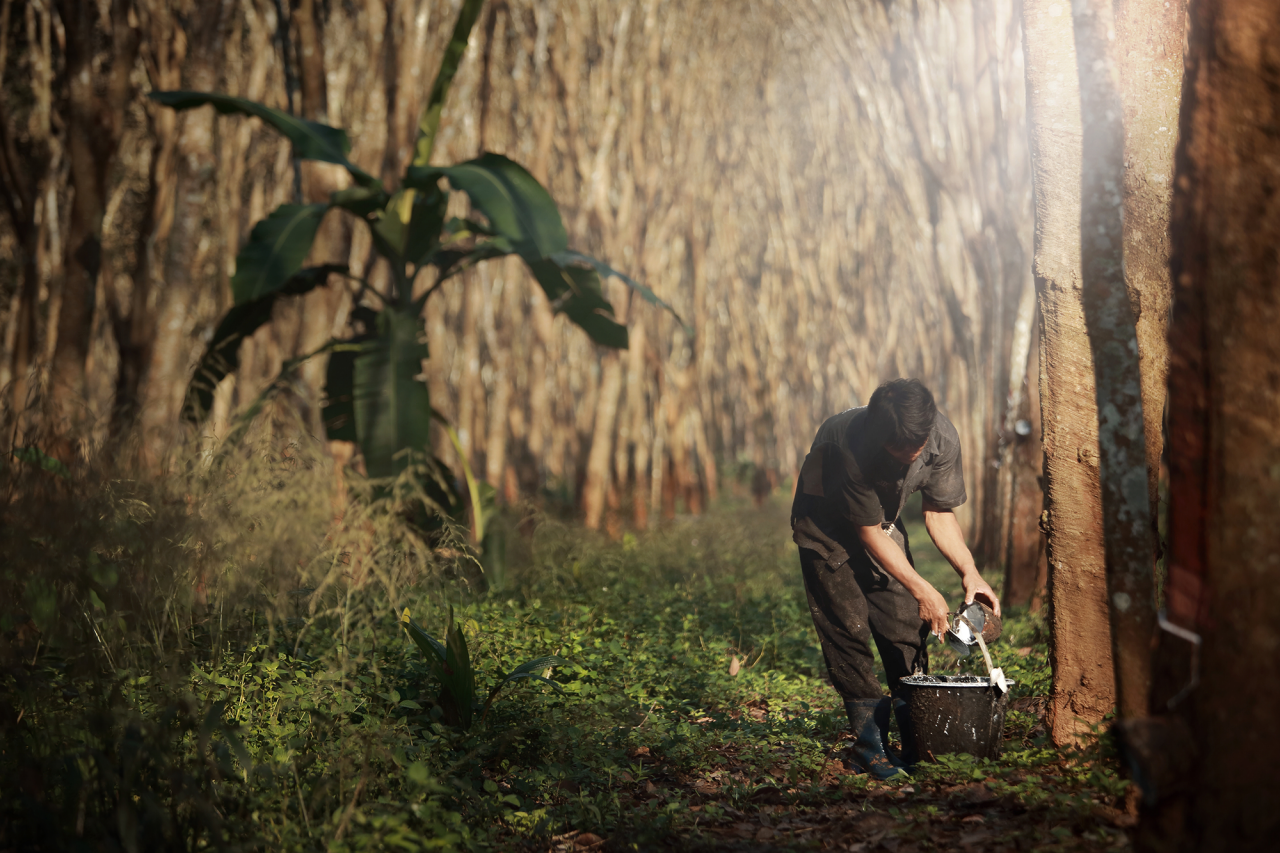
To increase transparency and sustainability along its supply chains, Continental is actively working with competitors and stakeholders in various collaborative industry approaches. For example, as an innovation driver in the natural rubber sector, Continental and partners (Michelin, SMAG) have already introduced the establishment of the joint venture Rubberway for digital risk analysis of the upstream supply chain (Tier 1 - Tier X) in 2019.
Since 2018 already, we have been involved in a joint project with the German development aid agency GIZ in Indonesian West Kalimantan on Borneo to prevent sustainability risks. Smallholder farmers in the natural rubber sector are trained to grow high-quality raw material in compliance with clearly defined sustainability criteria. The aim is to improve the income of the project participants through higher-quality natural rubber.
Our highly qualified experts have been researching innovative sustainable materials such as natural rubber from russian dandelion for many years. The central aim of the project Taraxagum is to stop importing natural rubber exclusively from the tropics in the future and to produce it as close as possible to the tire plants in order to prevent ongoing deforestation and to reduce CO2 emissions caused by long transport routes.
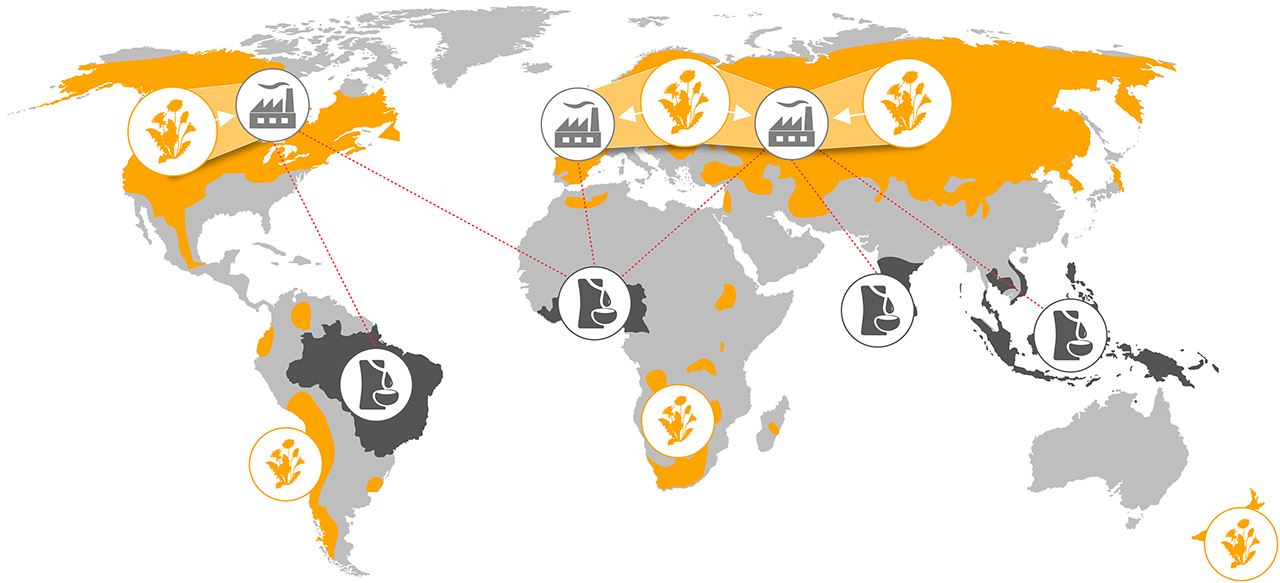
Together with Security Matters (SMX), a company focused on the digitization of physical objects in the blockchain, we are working to develop and test a marker technology for natural rubber. The special marker technology, which has been further developed by the project partners for use in natural rubber, is intended to contribute to even greater transparency and traceability along the entire value chain of tires and technical rubber products from Continental in the future.
Provided with special security features, the use of marker substances enables the invisible labeling of natural rubber with information on its exact geographical origin. With the aid of special reading devices and specially developed software, the information on the natural rubber can be read out and its origin can be precisely assigned at any time. As part of the industrialization of this technology, it would also be conceivable for the marker technology to be linked to blockchain technology, which is known to be particularly forgery-proof.
With immediate effect, Continental will handle part of its purchasing of natural rubber through a new digital trading platform designed to ensure greater transparency and sustainability in the natural rubber supply chain. The new HeveaConnect platform validates key aspects of a sustainable supply chain and ensures compliance through transparency and special offers. Market participants are provided with standardized information on quality, traceability, and compliance with social and environmental standards, as well as information on average selling prices.
